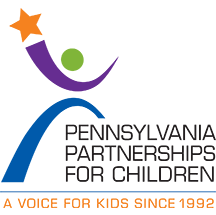
In March 2020, the Centers for Medicare & Medicaid Services (CMS) temporarily waived certain Medicaid and Children’s Health Insurance Program (CHIP) requirements and conditions as a result of the COVID-19 pandemic. The easing of these requirements was referred to as the ‘Medicaid Continuous Enrollment Condition,’ and it helped prevent people with Medicaid and CHIP from losing their health coverage during the pandemic.
The Medicaid Continuous Enrollment Condition ended on March 31, 2023, and states are now returning to regular operations, including restarting full Medicaid and CHIP eligibility renewals and terminations of coverage for individuals who are no longer eligible. Some states began terminating Medicaid enrollment for individuals no longer eligible as of April 1, 2023. On February 24, 2023, CMS posted the anticipated state timelines for initiating unwinding-related renewals on the Unwinding and Returning to Regular Operations after COVID-19 webpage.
NEW MEDICAID AND CHIP RESOURCES FOR PARTNERS
CMS has developed a variety of tools and materials for partners to help ensure that people enrolled in Medicaid and CHIP know what steps to complete regardless of where they are in the Medicaid and CHIP renewal process. All of these resources can be found on the recently updated Medicaid.gov/Unwinding webpage. These resources will help CMS partners educate Medicaid and CHIP enrollees on steps they need to take and when.
- Medicaid and CHIP Eligibility Renewals Communications Toolkit: The Unwinding Communications Toolkit has been updated with new materials for Phase II, including social media posts and graphics, a drop-in article, a Partner Tip Sheet, and factsheets on different coverage options.
- Unwinding Toolkit Supporting Materials: This zip folder contains downloadable versions of the materials featured in the Toolkit, including social media graphics, flyers, postcards, the Tip Sheet, and more.
- Medicaid and CHIP Renewals Webpage: A webpage designed for people enrolled in Medicaid and CHIP to help them prepare to renew their coverage. The page includes an interactive map with each state Medicaid office’s website and other contact information.
- Unwinding Speaking Request Form: Submit a request to have someone from HHS or CMS speak about Medicaid Unwinding at an upcoming event.
The complete Medicaid and CHIP Eligibility Renewals Communications Toolkit is available in Spanish, and select materials are available in five additional languages, which include:
All flyers, cards, and other handouts in the Medicaid Unwinding Toolkit Supporting Materials zip folder are available in Spanish. Select materials have also been translated to Chinese, Hindi, Korean, Tagalog, and Vietnamese. These materials include:
- Phase I Medicaid Unwinding Non-fillable Flyer
- Phase II Medicaid Unwinding Factsheet
- Phase II Post Card
The information on the Medicaid and CHIP Renewals page is also now available in Spanish.
UPDATES TO HEALTHCARE.GOV (MARKETPLACE INSURANCE)
The HealthCare.gov homepage was recently updated to highlight information for those who may be losing Medicaid or CHIP. Consumers can find information about health insurance coverage options and see if they qualify for a Special Enrollment Period (SEP).
Information has also been added to CuidadoDeSalud.gov.
UPCOMING PARTNER WEBINARS
HHS and CMS continue to host a series of monthly webinars on Medicaid and CHIP Continuous Enrollment Unwinding to educate partners. Topics covered during the webinar vary each month. Webinars take place the fourth Wednesday of each month from 12:00pm – 1:00pm ET. Register for upcoming webinars here.
Recordings, transcripts, and slides from past webinars can be found on the CMS National Stakeholder Calls webpage


 When was the last time you thanked the water operators in your community for delivering safe water to your home? Tap water is something that many take for granted and we don’t often think of who was involved in making that happen. Regardless of the fluoridation status of your water system, water operators do an essential job of providing you and your family with safe drinking water.
When was the last time you thanked the water operators in your community for delivering safe water to your home? Tap water is something that many take for granted and we don’t often think of who was involved in making that happen. Regardless of the fluoridation status of your water system, water operators do an essential job of providing you and your family with safe drinking water.
